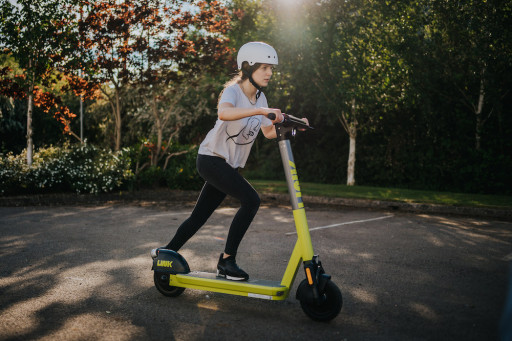CAMBRIDGE, Mass., March 9, 2023 (Newswire.com) - Today, Superpedestrian, the MIT-spinoff engineering firm behind the world's safest and smartest e-scooters, released a report on how the industry is moving forward to measure the sustainability impact of micromobility. The report, which was commissioned by Superpedestrian and produced by the Cities Today Studio, also announces a new standardized life cycle assessment process for e-scooters, developed by a multi-sectoral working group and headed by the New Urban Mobility Alliance (NUMO).
"We know that micromobility is making a positive environmental impact in cities by displacing car traffic. However, the industry lacks ways to fully capture the environmental impacts, which makes it difficult for cities to draw a direct connection between human-scale transportation and their sustainability goals," said Jamie Perkins, Director of Communications at Superpedestrian. "Finally, the industry and cities are working together to standardize the process for measuring micromobility's substantial environmental benefits."
Initiated by Superpedestrian in 2021, the working group includes representation from major operators including Lime, Bolt, Tier, Bird, Lyft and Spin. Cities are also participating, including Seattle, Los Angeles and Oslo, Norway, as well as experts like life cycle assessment expert Anne de Bortoli of Polytechnique Montreal (CIRAIG).
Life cycle assessment is a way to measure the total emissions from a product or service — not just the emissions created from its operation. This includes the emissions from extracting raw materials, manufacturing, shipping, servicing, and powering the vehicle. Cities are increasingly focused on the environmental impact of micromobility, and demanding that operators report sustainability metrics in the permit selection process. Up until now, however, there has never been a standardized process for calculating the sustainability impacts of e-scooters. The LCA guide will be released this spring.
The report interviews government officials from Washington, D.C., Bordeaux, France, Chicago and Milton Keynes, England, four cities that all point to achieving sustainability gains as a driving force behind their scooter programs.
In addition to announcing the life cycle analysis standardization, the report brings together governments, system operators and research experts to explain the need for standardized environmental impact measurements for micromobility. It also details ways that micromobility operators are already making the industry more sustainable, such as using long-range or swappable batteries.
Read the report: superpedestrian.com/how-to-measure-the-environmental-impact-of-micromobility
About Superpedestrian: Superpedestrian was spun out of MIT in 2013 with the mission to develop the world's smartest and safest light electric vehicle fleets. In 2020, Superpedestrian debuted the LINK Scooter, heralded as "The Volvo of e-Scooters" for its patented Vehicle Intelligence platform that actively prevents costly mechanical and electrical hazards that beset other e-scooter operators. Named one of Fast Company's Most Innovative Transportation Companies of 2022, Superpedestrian has become a world-leader in transportation robotics and human-scale mobility, holding over 40 patents in autonomous failure protection for vehicles, automated maintenance software, fleet optimization, and vehicle context awareness.
Contact Information:Jamie Perkins
Director of Communications
jamie.perkins@superpedestrian.com
970-222-7587
Original Source: New Report Details Recommendations for Measuring the Sustainability Impact of Shared Micromobility


